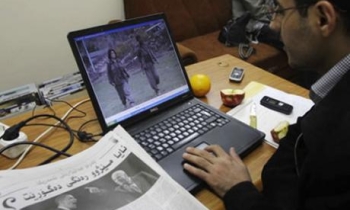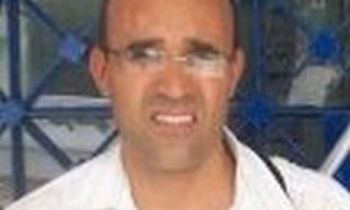Press freedom organisaitons have voiced concern over the repeated harassment of journalist Abdul Karim Al-Khaiwani by the Yemen government. The latest incident happened last week when Khaiwani was attacked by unknown assailants suspected of being security officers.

“Al-Khaiwani was abducted in the middle of the street in the centre of Sana’a by about 10 gunmen as he was leaving the premises of the newspaper Al-Nedaa on August 27,” Reporters sans Frontières (RSF) said. “He was then beaten and threatened with death if he continued to publish articles critical of the government.
“Our colleague is being singled out and targeted in an attempt to stifle independent voices in the media,” said International Federation of Journalists (IFJ) General Secretary Aidan White. “The Yemeni authorities must prove their commitment to free journalism and punish those responsible for this attack.”
In a leter to Yemen President Ali Abdullah Saleh, RSF said, “Despite official denials, its seems that the government’s security services were involved, as Al-Khaiwani clearly recognised one of his abductors as being a member of the group of officers who arrested and manhandled him at his home on June 20 and then took him to the state security prosecutor’s office, where he was held until the following day. Charged with ‘belonging to a terrorist cell’ and ‘publishing false information on the war between government forces and rebels in the northwest,’ he still faces a possible death sentence.”
The letter also referred to the case of the newspaper Al Share’a, which was invaded on July 30 by some 10 gunmen who threatened to killed its editor, Naif Hassan. The attack was apparently linked to a complaint filed against the newspaper on July 7 by the defence ministry following a series of controversial articles on the fighting in Sadaa.
“We are particularly concerned about the prosecution initiated against Al-Share’a,” the letter said. “The complaint was filed with the State Security Court under article 126 of the criminal code. This is the same court that will try Al-Khaiwani. It is the first time that a newspaper is being prosecuted by this court, whose impartiality is in question."

“These prosecutions could set a dangerous precedent, harm relations between the media and the government, and contribute to a deterioration in legislative and constitutional protection for press freedom. Furthermore, the climate of violence will inevitably encourage journalists to censor themselves.”
The letter ended by asking President Saleh to do everything necessary to get to the bottom of the attack on Al-Khaiwani and to ensure that he and Al Share’a are tried by an appropriate court, as required by the press and publication law.
IFJ sees the repeated attacks on Al-Khaiwani as part of an attempt to undermine freedom of press. The government has raided other media organisations and charged journalists with terrorism-related crimes. “These attacks and harassment must stop immediately and the government must respect the right of freedom of expression and allow Abdul Karim to continue to report freely and maintain his independent voice in Yemen’s media,” White said.

ARTICLE 19 has called on the Yemen government to withdraw its proposals to introduce a new law which, according to the free speech organisation, would, among other things, make it a serious crime to incite others to demonstrate against the government, a protected activity under international human rights law.
The Yemeni government recently made a strong commitment to protect human rights by adopting the National Reform Agenda in 2006. This complements its obligations under the International Covenant on Civil and Political Rights (ICCPR), which it has ratified, as well as the Arab Charter on Human Rights.
ARTICLE 19 said the Yemeni Government is therefore under an obligation to launch an immediate, impartial, thorough and independent investigation into the assault on Al-Khaiwani, with a view to bringing those responsible to justice, and to provide protection to journalists who are in danger, including Al-Khaiwani.









